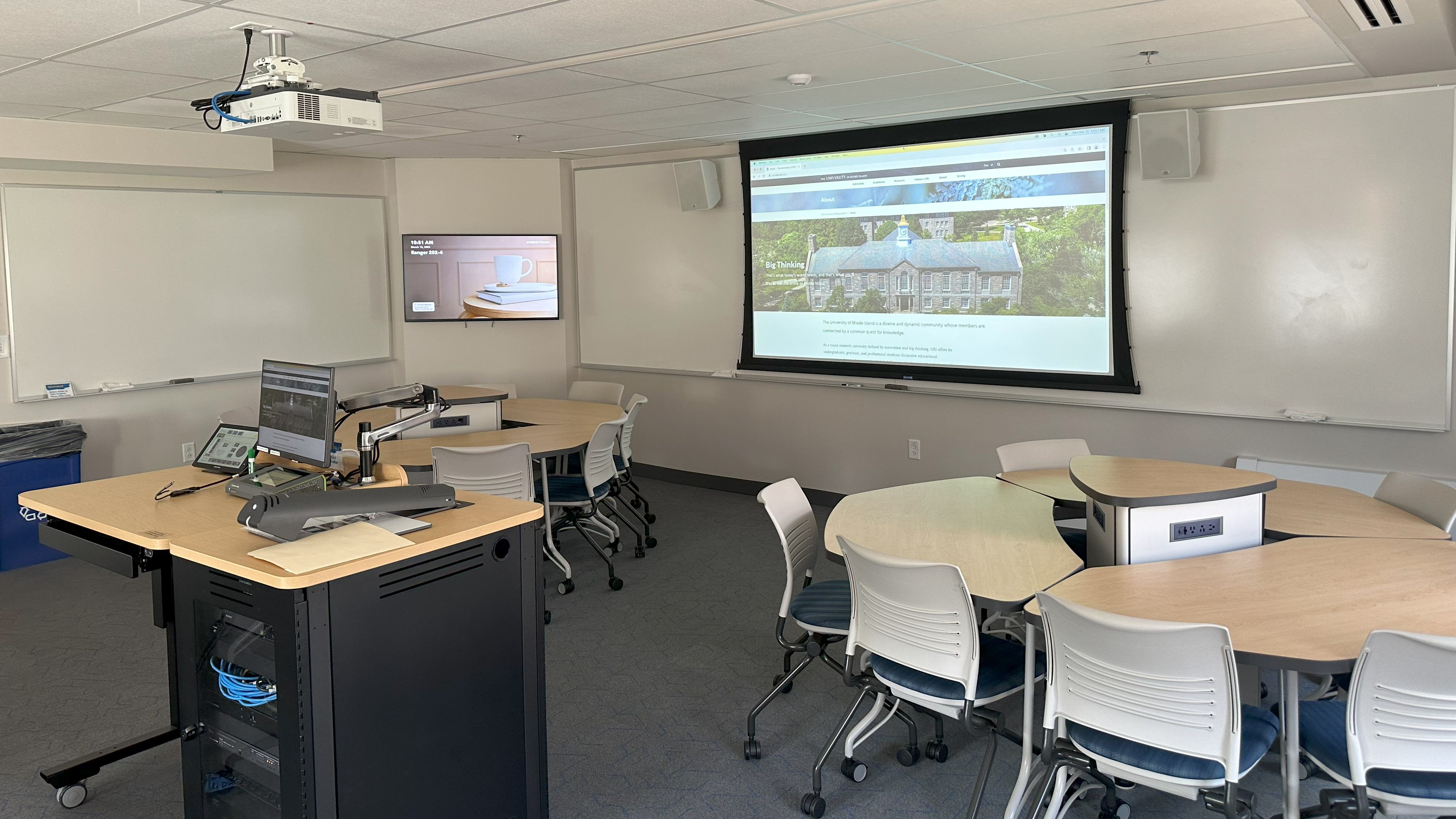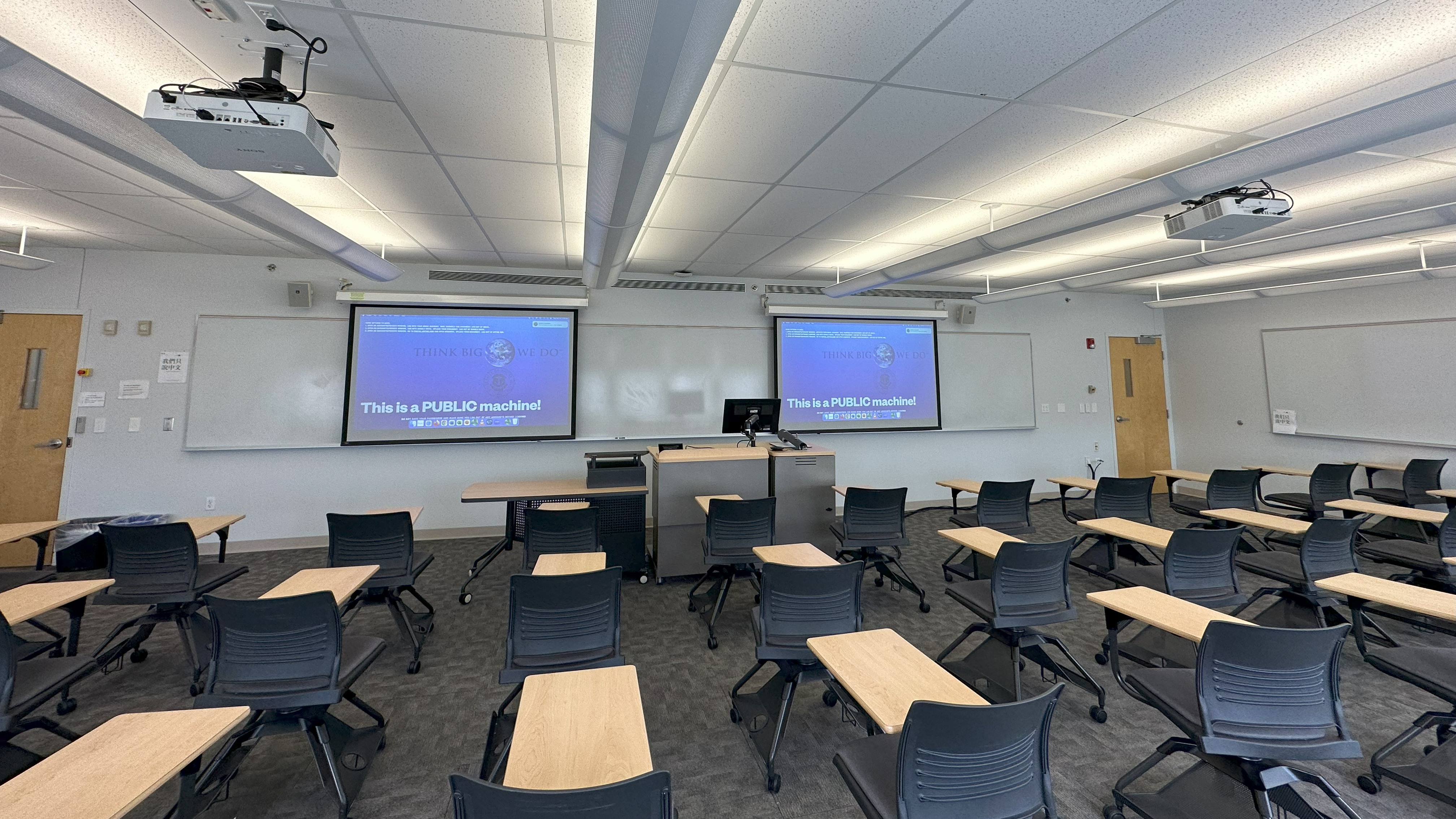
The trends in higher education have changed significantly over the past four years. Recently, with the help of Sony, the University of Rhode Island prepared itself for the new era of education inside and out of the classroom.
“Everyone was realizing that we needed displays and the ability to have hybrid meetings,” said Jeffrey Levesque, lead information technologist at URI. In addition to addressing its hybrid needs, URI also decided to obtain new projectors due to failures with its lamp projectors that required frequent replacements. URI decided to implement Sony’s laser projectors—a move that would be practical and cost effective due to not requiring lamp replacement. This also led to a related benefit of reduction in resource usage.
Levesque first experienced Sony’s products in 2018 when one of the company’s sales reps visited the URI campus. Impressed with the products, the university started slowly updating its projectors to Sony’s as part of its new classroom revision cycle. URI now has close to 120 of Sony’s laser projectors in nearly every classroom. The university started off with the VPL-PHZ10 and VPL-PHZ12 installation projector models. Now URI has expanded its use to include the ultra-compact VPL-PHZ60 and VPL-PHZ61’s as its main models, which offer 6,500 center lumens and 7,000 center lumens of brightness, respectively. These laser models also feature a fast start up and shutdown for saving time and energy.
“We tend to just put the VPL-PHZ61 in now because the brightness is great,” said Levesque. “If it’s too bright, I can decrease the brightness and make the projector last longer. I also like the size because they’re light for when I have to install them. It’s really easy to go up and put them in. It takes me no time to put one of these up compared to other projectors I’ve worked with, and I don’t need assistance because I can basically install them myself.”
[9 Large-Venue Projectors and Key Features Experts Recommend as Live Events Return]
In addition to projectors, URI has also installed Sony’s pro BRAVIA displays across its campus. Prior to the pro BRAVIA installation, there hadn’t been a standard for displays on campus. Due to there being a variety of displays in different locations, it was difficult to keep track of which ones were being serviced, if they had the right equipment to be maintained, and how they operated.

“We’re a small department that kind of does everything on campus at this point, and we couldn’t keep it up anymore,” explained Levesque. “When we saw the displays, we were blown away by the image quality that we were getting compared to what had been installed.”
URI now has more than three dozen pro BRAVIA displays between the sizes of 65 to 85 inches. The university’s displays are primarily utilized for reinforcement in their classrooms. Certain classrooms have a secondary display in the back of the room, and extended displays in the front of the room. A lot of pro BRAVIA displays are also being installed for digital signage across campus to provide information to students and the public. Levesque is advocating for them to be installed on campus for other uses such as the school’s Memorial Union which is also in the process of swapping their displays over to pro BRAVIA’s for digital signage needs. URI is also currently utilizing pro BRAVIA displays and audio reinforcements to make their conference rooms more modern-especially when it comes to hybrid meetings.
[What is the Future of AV Technology in Higher Education?]
Since updating their equipment, Levesque and others have noticed positive results such as saving time and money on repairs.
“One thing we’ve noticed is when we put the Sony ecosystem on campus, it just works,” said Levesque. “We get them in, we put them up, and we really don’t have to think about them. I don’t have to visit the displays or projectors all the time and change their lamps or filters—they just work. We set the displays on an internal schedule to power them on and off for us utilizing the Pro Mode (BRAVIA pre-loaded functionality) and they work great. I don’t get calls like I used to anymore.”
URI’s students and staff have also noticed some changes. Faculty members have continuously told Levesque and the rest of the AV team how great the projectors’ image-quality is, and how their reality creation feature is very helpful when presenting their lessons because everything looks clearer and brighter. The students are also more engaged with the content due to the projectors providing brighter imagery.
“We have amazing service and reps with Sony,” Levesque maintained. “Sony has been great when it comes to any issues that I have or even doing future design work. We are incredibly happy here.”







